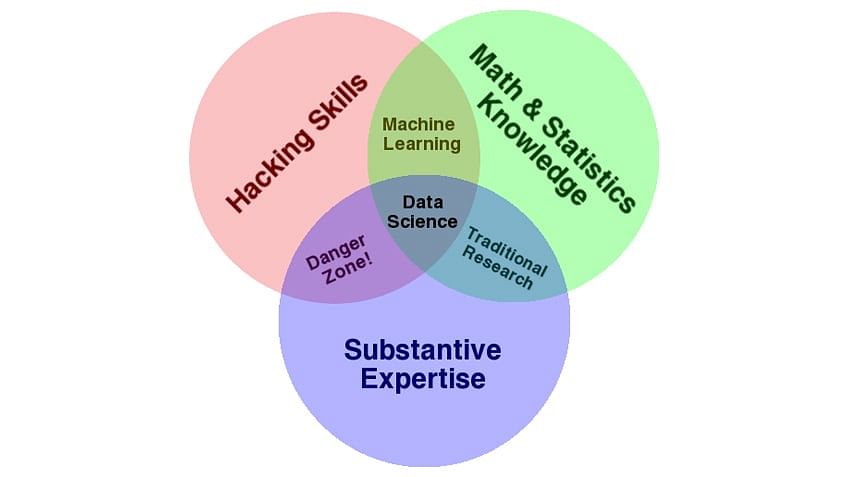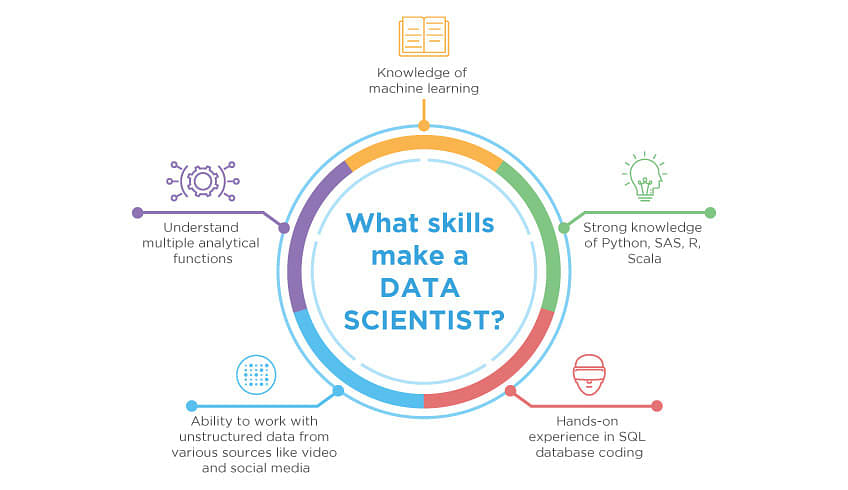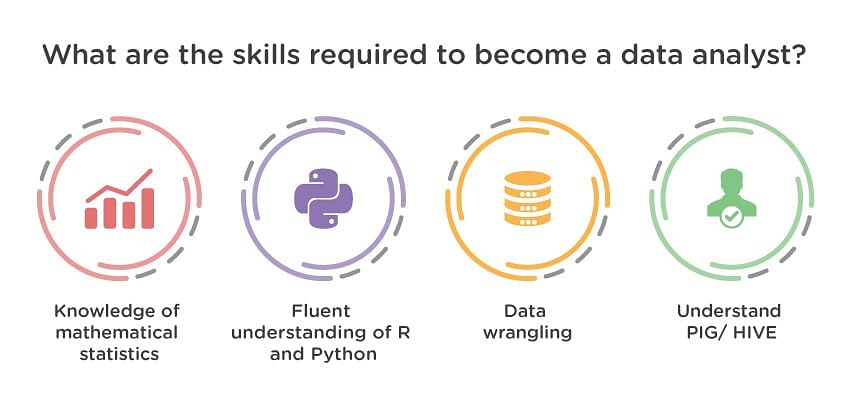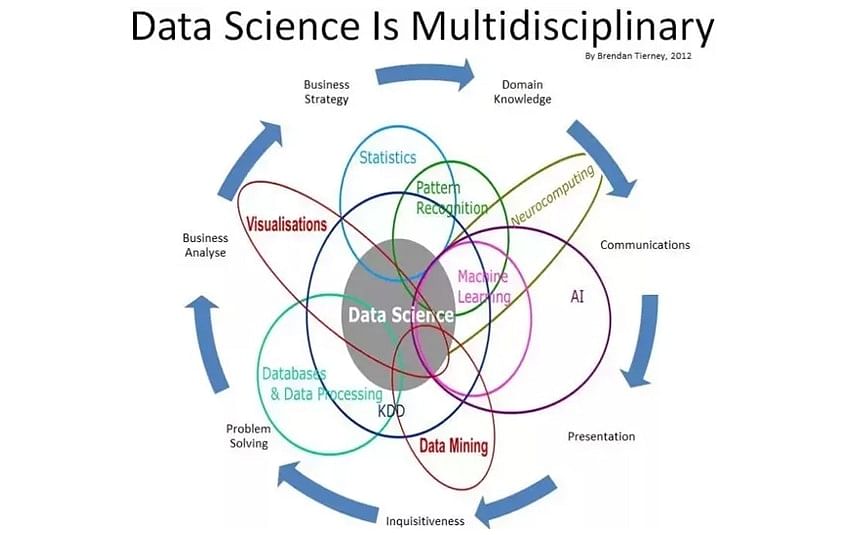What is Data Science?
People have tried to define data science for over a decade now, and the best way to answer the question is via a Venn diagram. Created by Hugh Conway in 2010, this Venn diagram consists of three circles: math and statistics, subject expertise (knowledge about the domain to abstract and calculate) and hacking skills. Essentially if you can do all three, you are already highly knowledgeable in the field of data science.
Data science is a concept used to tackle big data and includes data cleansing, preparation, and analysis. A data scientist gathers data from multiple sources and applies machine learning, predictive analytics, and sentiment analysis to extract critical information from the collected data sets. They understand data from a business point of view and can provide accurate predictions and insights that can be used to power critical business decisions.
Skills Required to Become a Data Scientist
Anyone interested in building a strong career in this domain should gain critical skills in three departments: analytics, programming, and domain knowledge. Going one level deeper, the following skills will help you carve out a niche as a data scientist:
- Strong knowledge of Python, SAS, R, Scala
- Hands-on experience in SQL database coding
- Ability to work with unstructured data from various sources like video and social media
- Understand multiple analytical functions
- Knowledge of machine learning
What is a Data Analyst?
A data analyst is usually the person who can do basic descriptive statistics, visualize data, and communicate data points for conclusions. They must have a basic understanding of statistics, a perfect sense of databases, the ability to create new views, and the perception to visualize the data. Data analytics can be referred to as the necessary level of data science.
Skills Required to Become a Data Analyst
A data analyst should be able to take a specific question or topic, discuss what the data looks like and represent that data to relevant stakeholders in the company. If you’re looking to step into the role of a data analyst, you must gain these four key skills:
- Knowledge of mathematical statistics
- Fluent understanding of R and Python
- Data wrangling
- Understand PIG/ HIVE
Data Science vs. Data Analytics
Data science is an umbrella term that encompasses data analytics, data mining, machine learning, and several other related disciplines. While a data scientist is expected to forecast the future based on past patterns, data analysts extract meaningful insights from various data sources. A data scientist creates questions, while a data analyst finds answers to the existing set of questions.
What is Machine Learning?
Machine learning can be defined as the practice of using algorithms to extract data, learn from it, and then forecast future trends for that topic. Traditional machine learning software is comprised of statistical analysis and predictive analysis that is used to spot patterns and catch hidden insights based on perceived data.
A good example of machine learning implementation is Facebook. Facebook’s machine learning algorithms gather behavioral information for every user on the social platform. Based on one’s past behavior, the algorithm predicts interests and recommends articles and notifications on the news feed. Similarly, when Amazon recommends products, or when Netflix recommends movies based on past behaviors, machine learning is at work.
Skills Required to Become a Machine Learning Expert
Machine learning is just a different perspective on statistics. The following are critical skills that can help you jumpstart your career in this fast-growing domain:
- Expertise in computer fundamentals
- In-depth knowledge of programming skills
- Knowledge of probability and statistics
- Data modeling and evaluation skills
Data Science vs. Machine Learning
Because data science is a broad term for multiple disciplines, machine learning fits within data science. Machine learning uses various techniques, such as regression and supervised clustering. On the other hand, the data’ in data science may or may not evolve from a machine or a mechanical process. The main difference between the two is that data science as a broader term not only focuses on algorithms and statistics but also takes care of the entire data processing methodology.
Data science can be seen as the incorporation of multiple parental disciplines, including data analytics, software engineering, data engineering, machine learning, predictive analytics, data analytics, and more. It includes retrieval, collection, ingestion, and transformation of large amounts of data, collectively known as big data. Data science is responsible for bringing structure to big data, searching for compelling patterns, and advising decision-makers to bring in the changes effectively to suit the business needs. Data analytics and machine learning are two of the many tools and processes that data science uses.
Data science, data analytics, and machine learning are some of the most in-demand domains in the industry right now. A combination of the right skill sets and real-world experience can help you secure a strong career in these trending domains.





No comments:
Post a Comment